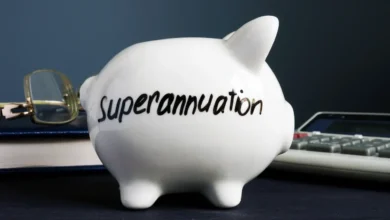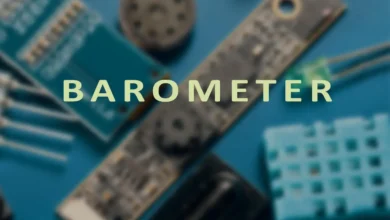Tracking Down or Transferring Super
Tracking Down or Transferring Super: What You Need to Know
Superannuation can be a complicated subject, and for many Australians, it’s easy to lose track of where their super is or how to manage it effectively. With billions in unclaimed superannuation sitting in inactive accounts, understanding how to locate, consolidate, and manage your super is crucial. Here, we’ll address key topics discussed with super specialist Marco Melado and answer common questions about unclaimed super, lost accounts, and managing contributions.

Unclaimed Super: Where Is It Hiding?
According to recent statistics, there is over $16 billion in unclaimed super across Australia. If you suspect some of that money might belong to you, here’s where your super might be hiding:
- Inactive Super Accounts in Super Funds
- These accounts are typically forgotten due to changes in employment or address. When super funds cannot contact you, the account becomes inactive.
- With the Australian Taxation Office (ATO)
- Small balances (under $6,000) in inactive accounts may be transferred to the ATO. While this prevents fees from eating into your balance, the returns are limited to the Consumer Price Index (CPI), which may not match the growth potential of active funds.
How to Track Down Lost Super
The ATO provides tools to help track lost super, but it might not catch everything. Here’s a step-by-step guide:
- Use MyGov: Log into your MyGov account linked to the ATO and search for unclaimed super.
- Contact Old Employers: Ask them which default super fund they used during your employment.
- Reach Out to Major Super Funds: If you suspect your super is with a specific fund, contact them directly.
- Be a Detective: Look into old addresses, previous names, and any historical records that could provide a clue.
Common Questions About Super Management
What Happens to Super in Special Situations?
- Double Fatality in an Accident
If both a primary account holder and their nominated beneficiary pass away simultaneously, the funds typically revert to the estate of the youngest deceased. It’s essential to have a well-written will to ensure your wishes are honoured. - Embezzled Super Contributions
Unfortunately, if an employer failed to pay your super contributions decades ago, it can be challenging to recover those funds. You may need legal support and substantial evidence, but it’s worth exploring if the amounts involved are significant.
Super Contributions: Age Limits and Beyond
- Making Contributions After 75
Voluntary contributions are no longer allowed after age 75, except under the downsizer contribution scheme. This applies to the sale of your principal residence but excludes investment properties. - What to Do With Funds Beyond Super
After 75, investing outside super becomes the primary option. Consider tax-efficient vehicles like trusts, companies, or direct investments in shares, bonds, or real estate.
Understanding Super Fund Components and Taxation
Super accounts today are divided into two components: taxable and tax-free. This simplification replaces older categories like pre- and post-1983 contributions. The tax-free component typically stems from pre-1983 contributions and remains tax-free for you and your dependents.
For those with defined benefit pensions, tax outcomes depend on whether the fund is from a taxed or untaxed source:
- Taxed Source Funds: Already taxed, leading to better tax outcomes.
- Untaxed Source Funds: Not taxed during accumulation but taxed later when accessing benefits.
Superannuation can be a maze of rules and options. As we’ve seen from a range of real-life examples, there are no one-size-fits-all answers. Each scenario demands a tailored approach, whether you’re managing super locally, transferring it from overseas, or planning for the long term. Let’s dive into the complexities that arise in unique super situations.
Recovering Overseas Super
Elaine’s question about her UK retirement fund highlights the hurdles involved in retrieving overseas superannuation. Tracking it down is the first challenge. Start with your UK employment history, contact the pension provider, or use online tools like the UK’s Pension Tracing Service.
Bringing the funds to Australia isn’t straightforward either. You’ll need a specialized fund like a Qualifying Recognized Overseas Pension Scheme (QROPS) or a self-managed super fund (SMSF) with the appropriate status. Be prepared for tax implications, contribution caps, and administrative hurdles. Professional guidance is highly recommended to streamline this process.

Contributing to Your Child’s Super
Danny’s thoughtful question about contributing to his 18-year-old son’s super is an excellent example of planning. Making non-concessional contributions to kick-start a young person’s retirement savings is a generous move. However, the funds will be locked away until at least age 60.
If you’re considering such a contribution, ensure it aligns with other financial priorities, like supporting your child with education, housing, or life milestones. Remember, long-term benefits come at the cost of immediate access.
Withdrawing Super After Moving Overseas
AJ’s daughter, who has permanently relocated overseas, faces another complex situation. Withdrawing super under the Departing Australia Superannuation Payment (DASP) rules is possible but comes with a tax rate of 30-40%. This tax can significantly reduce the value of the payout.
Whether it’s worth withdrawing depends on the amount saved and her needs in the new country. Consulting a financial advisor is crucial to making an informed decision and exploring potential alternatives.
Retired and Managing Allocated Pensions
Diane’s concern about her dwindling super balance highlights a common issue for retirees. Allocated pensions often require mandatory minimum withdrawals, which can deplete the principal over time.
If preserving the balance is the goal, transferring the funds out of the pension environment into a personal investment account may help. While you’d lose the tax-free status of the pension, low-income retirees might not face significant tax burdens. This allows for more control over how the money is invested or spent.
What to Do with Spare Cash?
Barry’s question about his $300,000 savings is an investment challenge. With funds outside the super system, the key is to define objectives: growth, income, or liquidity. Answering these questions informs the choice of assets—whether it’s shares, bonds, property, or a diversified managed fund.
Small Balances and High Fees
Lastly, Gail’s concern about her daughter’s super losing significant fees is a reminder to monitor fund performance and associated costs. For young workers with small balances, choosing a low-fee fund is critical to avoid erosion. Investigating industry super funds with caps on fees or even government-backed MySuper products can ensure better value.
Superannuation is often seen as “set and forget,” but as these examples show, proactive management can make a substantial difference. Whether you’re consolidating, contributing, or withdrawing, understanding the rules and planning is the key to maximizing the benefits of your retirement savings. Keep asking questions and seek expert advice to navigate the complexities with confidence.
Final Thoughts
Managing super requires engagement and periodic reviews. Whether you’re chasing lost super or planning for retirement, it’s worth dedicating time to ensure your super is working for you. From tracking down accounts through MyGov to consolidating funds, staying proactive can help secure your financial future.
If you have further questions about superannuation or managing your accounts, consulting with a financial adviser can provide personalized guidance. Remember, super is your money—don’t leave it unclaimed!





